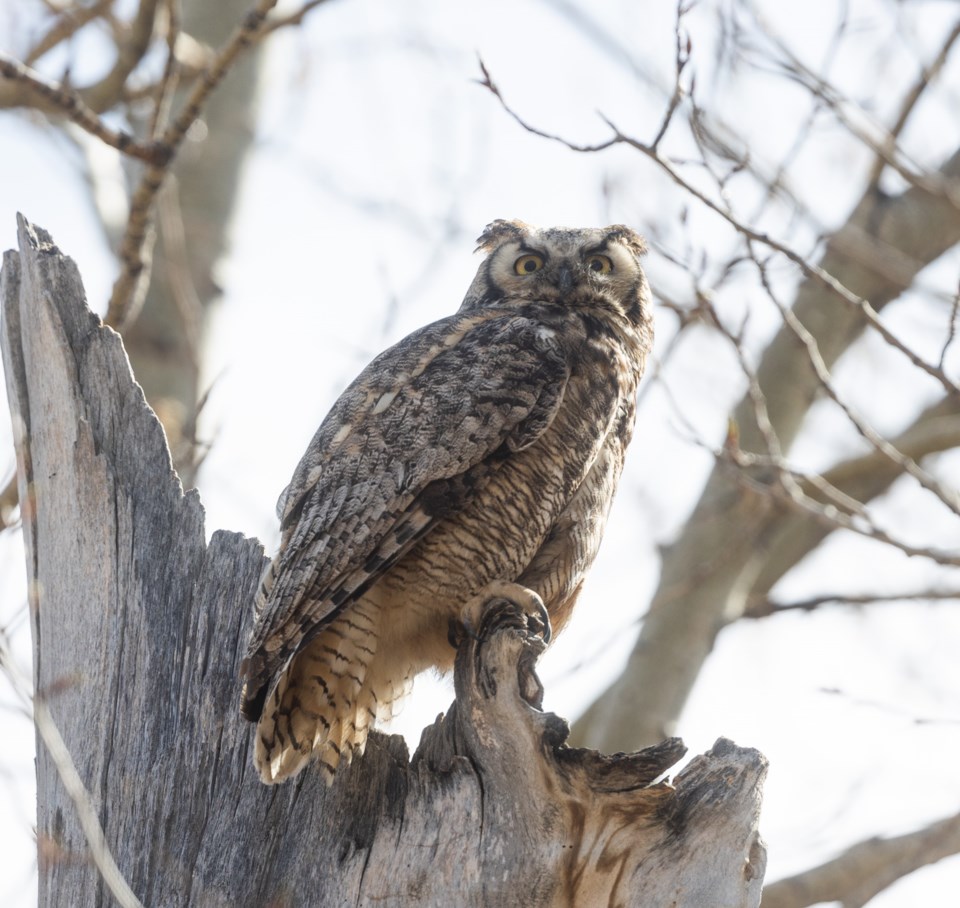Residents of Saskatchewan are requested to assist in a research project spotting great horned owls within the province.
The Royal Saskatchewan Museum (RSM) and the University of Regina (U of R) have teamed up in this joint venture to facilitate this initiative.
Dr. Ryan Fisher, RSM curator of vertebrae zoology, explained how the research would help and solve the mystery of great horned owls' adaptations in Saskatchewan’s natural habitat of grass and farmlands.
He also said, the research will focus on their food habitats, nesting and hunting grounds, mating and reproduction habitats, and so on. In his observation, the population of this owl species have increased remarkably.
Fisher said, “We have had more than 500 responses and reports of owls in 298 townships across the province.”
In western Saskatchewan Fisher and his team caught 10 owls and attached transmitters on them.
“These transmitters are essentially like having the owls carry around cell phones so that we can track their movements for 24/7 days a week,” he continued.
For parts of his study, Fisher is interested to see how this particular owl species managed to fit in agriculture lands, as well as spend a lot of time within human communal space like power poles and old buildings. He is eager to see what helped long horned owls to expand their radius throughout the province.
For the success of this research, RSM and the U of R are asking for public interest and support. The U of R has developed a form that can be used to help Saskatchewan residents collect data on the great horned owls and keep a record of it.
Owls are extremely sensitive birds so own spotters are cautioned to make their approach from a distance. Team ebird has guidelines for reporting sensitive birds and their species which can be found online on their website.
This research will continue until 2023.
More information is available on the Royal Saskatchewan Museum’s website for the world class research and programming; visit https://royalsaskmuseum.ca/, Facebook (@royalsaskmuseum), Twitter(@royalsaskmuseum), Instagram (@royalsaskmuseum), and YouTube https://www.youtube.com/royalsaskmuseum.




